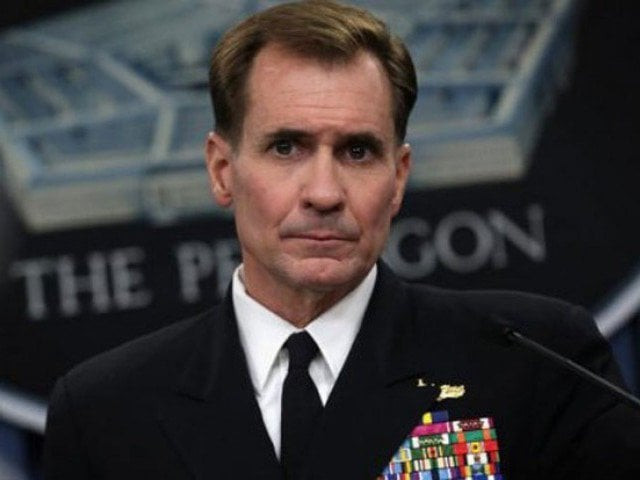US disappointed with collapse of Pakistan-India talks
State dept spokesperson says Pakistan, India should work out all issues between them

State dept spokesperson says Pakistan, India should work out all issues between them. PHOTO: AFP
Addressing the daily briefing at the State Department in Washington, spokesperson John Kirby that the US “encourage India and Pakistan to resume a formal dialogue soon.”
“We were encouraged by the constructive interaction – the early constructive interaction between the leaders of India and Pakistan earlier this year,” Kirby said, adding that they were “disappointed that the talks didn’t happen.”
“The issues are important; we recognise that. The tensions in the region are significant; we recognise that. And we believe it’s important for leaders of both countries to resume these – this dialogue and discussion and to try to come to some resolution.”
Asked about how India wanted to keep the talks confined to terrorism, while Pakistan wanted a broader spectrum of discussion, Kirby said that terrorism remained a shared challenge, one that the two nuclear tipped countries should sit and address jointly.
“We want both nations to sit down and hammer out the issues between them. Some of them have to do with violent extremism and some of them don’t; we understand that. But these are issues that the two parties have got to work out.”
On Kashmir, Kirby said that while the US' position on the topic had not changed, adding that it was an issue that both countries need to resolve bilaterally.
Asked whether the recent wave of attacks in Afghanistan would alter the US strategy in the war torn country, Kirby said that there had been no shift in strategy with respect to the Taliban. “We want to see Afghan-led political reconciliation continue to advance.”
Calling the first round of talks between the Taliban and the Afghan government in Murree a few weeks ago, the State Department spokesperson said that it was encouraging, but was dismayed the second round was delayed indefinitely.
“We haven’t been able to see that happen again.”
Despite that, Kirby said that the US backed the process, regardless of role played by other nations such as China, as long as the it was an Afghan-led process. “As long as that participation is helpful to an Afghan-led process, then we’re in no position to say we don’t support that.“
“As for the Taliban’s future, much of it is for them to determine if they’re going to renounce violence and renounce the terrorist type tactics that they use, and contribute to a meaningful reconciliation process in Afghanistan, well then we support that – an Afghan-led reconciliation process.”



















COMMENTS
Comments are moderated and generally will be posted if they are on-topic and not abusive.
For more information, please see our Comments FAQ